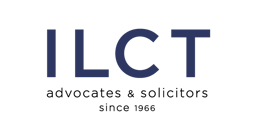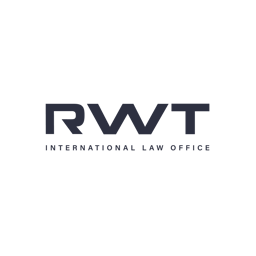
Thailand


Baker McKenzie LLP

Blumenthal Richter Sumet & Schuler Ltd.

Chandler Mori Hamada Limited

DLA Piper

Domnern Somgiat & Boonma Law Office Ltd

ES Counsel

Formichella & Sritawat

FRANK Legal & Tax

Hunton Andrews Kurth LLP

IAS Advisory

ILAWASIA CO.,LTD.

ILCT Ltd.

JTJB International Lawyers Co Ltd

Kudun & Partners

LawPlus Ltd.

Lexpertise Law Firm

Linklaters

Mahanakorn Partners Group Co

Nagashima Ohno & Tsunematsu (Thailand) Co., Ltd.

Natipatana Law Office

R.W.T. International Law Office

Rajah & Tann

Rajah & Tann (Thailand) Limited

Satyapon & Partners Limited

Siam Premier International Law Office Limited

The Capital Law Office Limited

Tilleke & Gibbins

Vidon & Partners (Thailand) Co., Ltd.

Watson Farley & Williams

Weerawong, Chinnavat & Partners
Comparative Guides
ViewNews & Developments
ViewTax
Thailand’s Top-up Tax: Potential Policy Directions and Regulatory Changes from the BOI and the Revenue Department
On January 1, 2025, Thailand’s Revenue Department began enforcing the Emergency Decree on Top-up Tax B.E. 2567 (2024), marking a significant step for Thailand toward implementing the OECD’s Global Anti-Base Erosion Model Rules under Pillar Two. This issuance aims to reduce tax competitions among countries by ensuring that in-scope multinational enterprise (MNE) groups are subject to an effective tax rate (ETR) of at least 15%.
Under this Emergency Decree, Thailand’s Revenue Department is authorized to collect Top-up Tax from MNEs operating in Thailand where the applicable ETR falls below the minimum threshold. This introduction may inevitably raise concerns among MNEs that have benefited under Thailand’s Board of Investment (BOI) as the BOI-granted tax incentives may trigger additional Top-up Tax liabilities.
In response, on November 12, 2025, the BOI, in collaboration with the Ministry of Finance, announced that it is in the process of revising the National Competitiveness Enhancement for Targeted Industries Act B.E. 2560 (2017) by introducing a Qualified Refundable Tax Credit (QRTC), which is a mechanism recognized by the OECD. This new form of incentive reflects a policy response aimed at aligning Thailand’s investment promotion regime with the OECD’s global minimum tax framework. However, this incentive is intended to be offered as an alternative measure for MNEs affected by the Emergency Decree, not to replace the offering of incentives. This means that investors who are not subject to the Emergency Decree can continuously benefit from the BOI-granted incentives as in the past.
Furthermore, on December 30, 2025, Thailand’s Cabinet approved four draft secondary legislations issued in pursuance to the Emergency Decree, which were developed in accordance with the OECD’s GloBE Model Rules and Commentaries, with the objectives of ensuring consistency with the international practices. The approved drafts address the detailed rules, including but not limited to the determination of in-scope MNEs and the approach for calculating Top-up Tax liabilities that such taxpayers are subject to under the Emergency Decree. The four draft laws are as follows:
Royal Decree prescribing the criteria for determining whether multinational enterprise groups that have undergone organizational restructuring are subject to the Top-up Tax;
Ministerial Regulation prescribing the criteria concerning entities that are not constituent entities;
Ministerial Regulation prescribing the criteria for allocating Top-up Tax to Thailand under the Undertaxed Payments Rule (UTPR) mechanism in cases where no constituent enterprise group located in Thailand has GloBE income; and
Ministerial Regulation prescribing the criteria for adjusting income, expenses, and covered taxes for the calculation of the Top-up Tax, including the criteria for calculating the Domestic Top-up Tax in Thailand.
Overall, these developments signal Thailand’s progress toward implementing the global minimum tax framework. However, further updates on their key aspects will be provided once the detailed rules become available.
Article by Senior Partner Sumet Mingmongkolmitr
Blumenthal Richter Sumet & Schuler Ltd. - January 26 2026
Update from Thailand DIP: Reclassification of Goods under the 13th Edition of the Nice Classification (Effective 2026)
The Department of Intellectual Property (DIP) of Thailand has announced the reclassification of certain goods under the 13th Edition of the Nice Classification, (NCL 13), which will take effect in 2026. This update aligns Thailand’s trademark classification system with the latest international standards and may affect both pending and future trademark applications.
Key changes include the transfer of several product groups to new classes, including:
Eyewear and lenses: Eyeglasses, sunglasses, contact lenses, frames, and related accessories will be reclassified from Class 9 to Class 10.
Safety and rescue equipment: Fire engines, fire boats, lifeboats, life rafts, and evacuation chairs will be reclassified from Class 9 to Class 12.
Electrically heated clothing and accessories: Heated garments, heated socks, and electrically heated footmuffs will be reclassified from Class 11 to Class 25.
The DIP also announced reclassification for several individual goods, including: terpenes, which will move from Class 3 to Class 1; tongue scrapers, from Class 10 to Class 21; watering hose nozzles, from Class 21 to Class 17; surf skis, from Class 28 to Class 12; and buttercream (icing), from Class 29 to Class 30.
According to the DIP’s announcement, applicants who file the trademark application before 31 January 2026 may continue using the existing classification. However, once the marks are registered, the new class positions under NCL 13 will apply upon renewal. Trademark owners are therefore advised to review their current trademark portfolios and upcoming filings to ensure that goods are correctly classified under the revised system, so as to avoid procedural issues and ensure continuous protection.
For more information or inquiries regarding trademarks or intellectual property in Thailand, please contact our IP professionals at [email protected].
Reference:
The reclassification of certain goods under the 13th Edition of the Nice Classification (NCL 13) can be retrieved at this link.
Author:
Dr. Pollawat Suppattarasaet, IP Partner; and
Thamolwan Insawang, Associate.
They can be reach at [email protected]
ILAWASIA CO.,LTD. - January 16 2026
Press Releases
Tilleke & Gibbins Appoints New Partners in Thailand, Further Boosting Dispute Resolution Bench Strength
Tilleke & Gibbins is pleased to announce the promotion of Chitchai Punsan and Suruswadee Jaimsuwan to partner in the firm’s Bangkok office, reinforcing the strength of the firm’s dispute resolution practice.
Chitchai has over 15 years of experience representing multinational corporations in complex disputes throughout Thailand and Southeast Asia. With a broad-ranging practice of contentious matters, he brings particular depth in customs violations, economic crime and regulatory investigations, product liability disputes, and civil and criminal litigation. Beyond his client work, Chitchai is recognized as a thought leader on customs and trade disputes, regularly sharing his insights as clients look to navigate a complex, geopolitical environment. He has also provided his expertise to a wide range of research projects for the Organisation for Economic Co-operation and Development (OECD) and the World Bank, playing an active role in shaping policy discussions on legal and regulatory issues impacting the region. Chitchai holds an LLB from Ramkhamhaeng University and a bachelor’s degree in business administration from Kasetsart University, and is a member of the Lawyers Council of Thailand and the Thai Bar Association.
Suruswadee has been serving clients with Tilleke & Gibbins since 2020. A former judge of the Thai Courts of Justice, she has extensive legal experience on and off the bench, bolstered by a deep knowledge of Thai law and court procedure. She uses her expertise to help clients develop strong and practical legal strategies, as well as to provide flawless advocacy in the courtroom. She is recognized by Benchmark Litigation as a commercial and transactions Litigation Star in Thailand and by Asialaw as a dispute resolution Distinguished Practitioner in Thailand. Suruswadee holds an LLM from Monash University, an LLM from King’s College London, and an LLB from Thammasat University. She is a barrister-at-law qualified by the Thai Bar Association, a notary public, an arbitrator on the rosters of both the Thai Arbitration Institute and Thailand Arbitration Center. She has been actively involved in legal education and policy engagement, including teaching law and providing substantive commentary on proposed legislation, and also supports a number of important diversity and inclusion initiatives.
Tilleke & Gibbins managing partner Darani Vachanavuttivong said, “Chitchai and Suruswadee exemplify the proactive, results-oriented advocacy that our clients rely on across courts, tribunals, and regulatory forums. Their promotion reflects our commitment to delivering exceptional dispute resolution services, and we are delighted to welcome them to the partnership.”
Tilleke & Gibbins managing partner Tiziana Sucharitkul said, "Chitchai and Suruswadee are trusted advisors to businesses navigating complex disputes across Southeast Asia. Their commercial acumen and deep legal expertise further strengthen our full-service capabilities and reinforce Tilleke & Gibbins’ reputation in dispute resolution."
About Tilleke & Gibbins
Tilleke & Gibbins is a leading Southeast Asian regional law firm with over 250 lawyers and consultants practicing in Cambodia, Indonesia, Laos, Myanmar, Thailand, and Vietnam. We provide full-service legal solutions to the top investors and high-growth companies that drive economic expansion in Asia.
Established in Bangkok in 1890, we have since grown into the largest independent law firm in Thailand and a leading international firm across Southeast Asia due to our commercial focus, local knowledge, and extraordinary service.
For enquiries, please contact Sara Miller, director, marketing & business development, at [email protected].
Tilleke & Gibbins - January 5 2026
Legal Insight: In-depth Analysis of the Risks of Operating a Cannabis Business in Thailand and Mitigation Strategies
Cannabis Legal History in Thailand
Thailand has a long and complex relationship with cannabis. Historically, cannabis (ganja) was widely used for medical, culinary, and cultural purposes. For centuries, Thai traditional medicine employed cannabis extracts as remedies for pain relief, appetite stimulation, and treatment of various ailments.
However, under the Narcotics Act B.E. 2522 (1979), cannabis was classified as a Category 5 narcotic, rendering its cultivation, possession, and use strictly illegal. Penalties for violations included imprisonment and heavy fines, and the substance became stigmatized as part of broader international anti-drug campaigns
The turning point began in the late 2010s, when global shifts toward decriminalization and medical legalization influenced Thailand’s domestic policy. In 2018, Thailand became the first country in Southeast Asia to legalize cannabis for medical and research purposes (Narcotics Act (No. 7) B.E. 2562 (2019)), allowing the limited use of cannabis oil, extracts, and research-based cultivation. At that time, operators were required to work closely with public agencies, such as universities and government hospitals, to cultivate and extract cannabis.
In June 2022, cannabis was officially decriminalized through its removal from the Narcotics List under the Ministerial Notification of the Ministry of Public Health (No. 8) B.E. 2565 (2022). This sparked a rapid proliferation of cannabis-related businesses, from dispensaries and cafes to wellness centers and agricultural ventures.
Nevertheless, the swift liberalization also triggered regulatory uncertainty and social debates. The lack of comprehensive oversight, concerns about recreational misuse, and rising public health risks pushed policymakers to reintroduce tighter controls, culminating in the Cannabis and Hemp Control Act (Draft Bill, 2024–2025) and ministerial notifications that now aim to balance economic opportunity with public health and social order.
New Approach of Legal Laws and Regulations in Thailand
2.1 Current Legal Framework
Following decriminalization in June 2022, cannabis entered a “grey zone” of regulation. Businesses mushroomed quickly, taking advantage of unclear restrictions, especially regarding recreational use. However, by mid-2025, the Thai government introduced new legislation and ministerial regulations to formally control cannabis cultivation, distribution, marketing, and consumption.
Key provisions include:
Cultivation Standards: The Cultivation of cannabis and hemp requires compliance with Thai GACP (Good Agricultural and Collection Practices) standards, ensuring both quality and traceability of cannabis flowers.
Licensing Requirements: Cultivation, import/export, sales, and processing of cannabis require specific licenses issued by the Food and Drug Administration (FDA) and relevant ministries under the Public Health Act B.E. 2535 (1992) and ministerial notifications.
Medical-Only Orientation: Cannabis is recognized as a controlled plant for medical and health purposes. Recreational use remains outside the scope of the law and is implicitly prohibited.
Doctor’s Prescription Requirement:
Any sale of cannabis flowers intended for smoking or direct consumption must be tied to medical use and supported by a prescription from a licensed physician (Ministerial Notification on Controlled Cannabis Products B.E. 2566 (2023)).
Any cannabis distillate, extract, or oil with THC exceeding 0.2% w/w is classified as a controlled substance under the Narcotics Act and may only be dispensed upon a doctor’s prescription.
Extracts with THC not exceeding 0.2% w/w may be incorporated into cosmetics, herbal products, or food supplements, subject to FDA product registration, quality controls, and labeling requirements.
Usage Restrictions: Smoking cannabis in public places remains subject to penalties under the Public Health Act for public nuisance. Marketing and advertising are prohibited from promoting recreational consumption or from targeting minors (Ministerial Regulation on Cannabis Advertising B.E. 2566 (2023)).
Import & Export Controls: Cross-border trade in cannabis or hemp requires pre-approval from the Ministry of Public Health, in line with Thailand’s obligations under the Single Convention on Narcotic Drugs 1961 and domestic legislation.
2.2 Impact on Businesses
These rules have reshaped the cannabis landscape. Dispensaries and recreational-style outlets face heightened scrutiny, while medical clinics, licensed manufacturing plants, pharmaceutical companies, and wellness enterprises benefit from clearer compliance pathways.
Notably, businesses engaged in the sale of cannabis flowers or high-THC distillates (>0.2% THC w/w) must operate strictly as medical establishments and employing licensed doctors authorized to prescribe cannabis products. This effectively transforms retail-style models into clinically regulated practices, raising compliance and operational costs.
Foreign investment in cannabis remains restricted under the Foreign Business Act B.E. 2542 (1999), which caps foreign ownership in the agricultural and service sectors unless exemptions are granted. While the Board of Investment (BOI) offers privileges for certain high-value industries, cannabis has not yet been included in BOI-promoted activities. In practice, without a permanent Cannabis Act, obtaining BOI promotion for cannabis businesses is unlikely.
Additionally, intellectual property (IP) protections for cannabis strains, cultivation techniques, and extraction processes are increasingly important, as licensing agreements and IP filings help safeguard competitiveness in a regulated market.
The Future of Cannabis Business in Thailand and Risk Assessment
3.1 Opportunities and Policy Direction
Despite regulatory tightening, the government continues to view cannabis as a sector with high potential for:
Medical tourism and integrative health services.
Pharmaceutical production of cannabis-derived medicines with EU-GMP certification
Agriculture, with cannabis and hemp positioned as high-value crops under Thai GACP standard.
Industrial hemp exports, including textiles, food supplements, and construction materials.
While rumors persist that the government may recriminalize cannabis, such a move would face strong resistance—including potential class actions from over one million licensed cannabis operators. More realistically, cannabis will remain regulated for medical, industrial, and research purposes, rather than being reclassified as a narcotic.
3.2 Risks in Cannabis Business
Regulatory Uncertainty
Laws remain in flux. Political changes or international obligations may prompt abrupt policy reversals.
Example: The 2022–2023 decriminalization wave was quickly followed by 2024–2025 restrictive reforms.
Criminal Liability
Unauthorized possession, sale, or use outside of medical purposes may trigger penalties under the Narcotics Act B.E. 2522 (1979) or ministerial cannabis regulations.
High risk: Dispensing cannabis flowers or >0.2% THC distillates without a prescription may result in imprisonment, fines, and license revocation.
Public Health and Social Concerns
Businesses risk reputational damage if they are linked to recreational misuse, underage sales, or public nuisance. Such events may also lead to license suspension by the FDA.
Foreign Investor Restrictions
The Foreign Business Act limits foreign participation in agriculture and cannabis-related services, unless exemptions are granted.
Banking and Financing Risks
Cannabis remains a “no-bank” sector in Thailand. Commercial banks typically refuse financing, credit facilities, or lending to cannabis operators due to compliance risks and reputational concerns.
Cross-Border Legal Conflicts
Exporting cannabis products without authorization can violate ASEAN neighbors’ narcotics laws, leading to severe penalties. Exporters must hold FDA export licenses, while importers must obtain permits from the destination country.
Compliance and Licensing Costs
Meeting Thai GACP and GMP standards requires significant investment. Smaller operators may be priced out, resulting in consolidation favoring larger, well-capitalized firms.
3.3 Risk Mitigation Strategies
Robust Legal Due Diligence: Review licensing requirements, corporate structure, and contracts with a qualified legal counsel.
Strict Prescription Protocols: Employ licensed doctors and establish patient consultation systems for the prescription of cannabis flowers and high-THC distillates.
Regulatory Monitoring: Retain compliance teams or external counsel to monitor ministerial notifications and regulatory changes.
Corporate Structuring: Form vetted joint ventures with reliable Thai partners, and conduct strict due diligence to avoid fraudulent actors in the market.
Product & Marketing Compliance: Adhere to THC content limits, labeling rules, and advertising restrictions, and avoid recreational branding.
Risk Management & Insurance: Obtain liability insurance and adopt strong corporate governance policies.
Diversification: Focus on industrial hemp, medical cannabis, and pharmaceutical-grade extracts, which carry fewer political and legal risks.
Cross-Border Legal Review: Secure legal opinions in both Thailand and the destination countries to ensure compliance with international drug control treaties.
Conclusion
The cannabis industry in Thailand represents both opportunity and risk. Thailand stands as a pioneer in Southeast Asia, opening pathways for medical, wellness, and industrial cannabis. Yet the regulatory environment remains fluid, and businesses face legal, financial, and reputational challenges
Of particular importance is the strict requirement that cannabis flowers and all cannabis distillates with more than 0.2% THC w/w can only be sold with a doctor’s prescription. Violations in this area carry serious criminal and civil liabilities and will remain a central enforcement priority going forward.
For investors and operators, success depends on rigorous compliance, sound structuring, and proactive legal strategy. By aligning with Thailand’s evolving regulatory framework, businesses can capture opportunities while minimizing risk.
At ILAWASIA CO., LTD., we provide comprehensive legal support for cannabis operators. Our Partner, Mr. Tanadee Pantumkomon, is one of the most experienced counsels in Thailand on cannabis cultivation, extraction, and product manufacturing. Our services cover FDA licensing and permits, corporate structuring, tax planning, dispute resolution, and cross-border advisory—ensuring that our clients’ investments are secure and compliant.
AUTHOR
Tanadee Pantumkomon, Partner. He can be reach out at [email protected]
ILAWASIA CO.,LTD. - October 17 2025
